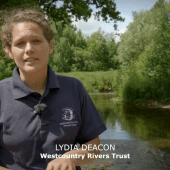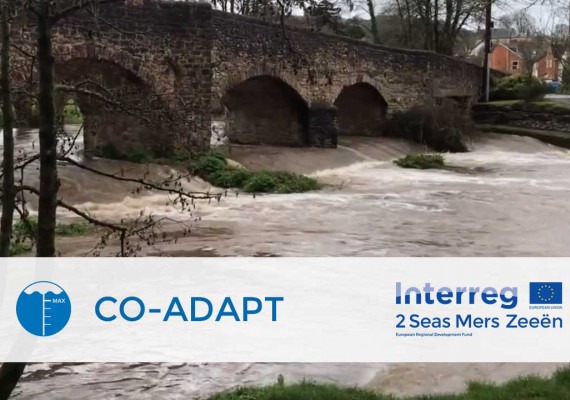Co-Adapt
Co-Adapt: Climate adaptation through co-creation
Priority Axis
Adaptation to Climate ChangeSpecific objective
Adaptation to Climate Change
Lead partner
Somerset County CouncilContact
Start Date
01/02/2019End Date
31/03/2023Project budget
7 347 114 €ERDF amount
4 408 269 €ERDF rate
60%About
Common challenge
Co-Adapt identified 3 barriers to climate adaptation: first, the need for moving beyond existing actors and empower stakeholders to take practical action through a more open policy process; second, the fact that unsustainable development & land management practices have degraded ecosystems and the natural water management processes, increasing flooding and exacerbating the effects of drought; third, the effects of climate change are very uncertain, and therefore demand for rapid adaptation decisions and flexible, adaptive strategies that will not create high future costs.
New solutions needed to be developed and applied to improve resilience. In a context of reduced public financing, better, more robust and cost-effective measures are needed. In response, Co-Adapt’s unique contribution is a strong focus on co-creation
Overall objective
Main outputs
Cross border approach
Main Achievements
Within Co-Adapt project, 7 co-created Nature Based Solutions (NBS) were developed and tested over Belgium, Netherlands and in the UK. In total, 25 demonstration sites (catchments subsites) have been implemented since the project started. The Open University designed and evaluated a Framework for Climate Adaptation through Co-Creation. To this end, it designed and implemented - together with partners - a framework based on a digital learning network of water professionals. This has been used as a Climate Adaptation case study by The Netherlands Enterprise Agency (RVO).
Devon County Council have developed a 'Blueprint for the Culm' – a long-term management plan. It is the culmination of a 3-year process of evidence-gathering, research, piloting, and discussion that has been co-created by a broad range of people. Cumulatively, the project has now involved more than 3500 stakeholders in engagement and co-creation processes. PNB also co-created a vision and implementation plan for the Aa of Weerijs around the city of Zundert.
National Trust has delivered a wide range of Nature Based Solutions. Beavers were reintroduced to Somerset after a 400-year absence. The project has also implemented innovative floodplain reconnection, the ‘Stage 0’ approach, for the first time in the UK. The project has received excellent local, national, and international coverage.
Adapting the Levels has launched a unique and pioneering new web-based app which will enable communities to co-create plans to prepare and adapt to the impacts of climate change. FWAG’s development of Moor Associations provides a long-lasting bottom-up organisational structure, a common platform on which co-created designs can be developed and implemented.
The approach of the Antwerp investment project was shared at various forums, including being showcased at the World Day of Urbanism 2022. It was also included as a case study in a book chapter.
The co-creation approach developed and tested by Flemish Land Agency has influenced the wider Water-Land-Schap programme team. 79 “Nature-based solutions” demonstration sites have as a result been planned, co-designed and completed. This system is easily replicable for other projects and has ensured involvement of all key stakeholders.
The municipality of Vlissingen has applied an innovative approach to allow non-experts and experts to jointly develop climate adaptive measures in an area prone to flooding. The lessons learned are spread within our region with experts from public bodies and the private sector.
Boulogne Water Board (SYMSAGEB) and Permanent Centre for Environment Initiatives (CPIE) have led a preventive action against flooding program in the Boulonnais area. Farmers, citizens, elected representatives and technicians were all involved.
Testimonial

The network of citizen scientists that we're starting to build is helping us to do that. Once people are aware and they start to understand their rivers better they realise how incredibly important they are and what rich diversity they can hold or do hold depending on the state of that river.
Lydia Deacon, Westcountry River Trust

